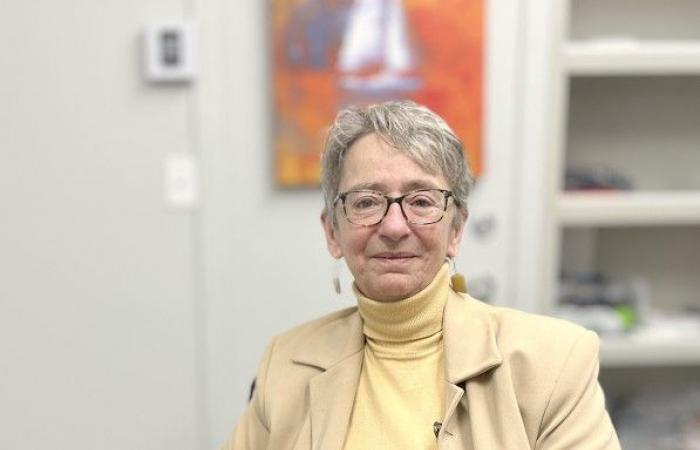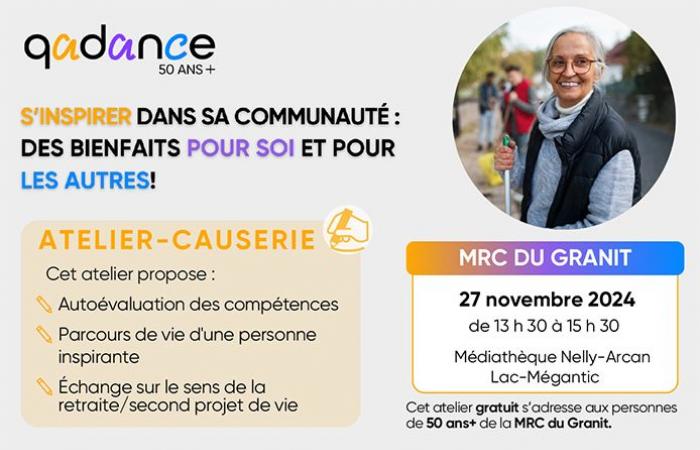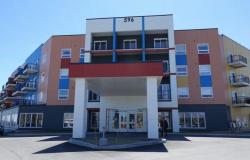Marthe Dumas, social worker at the Granit service point of the Alzheimer Society of Estrie. (Photo Claudia Collard)
Aimed at both caregivers and people suffering from a neurocognitive disorder, in addition to working to prevent the disease, the Alzheimer Society of Estrie (SAE) serves the entire territory of the MRC du Granit and has a service point located in Lac-Mégantic.
A diagnosis of Alzheimer’s or a related illness does not mean that everything is over, points out Marthe Dumas, social worker at the Lac-Mégantic point of service. Hence the importance for those affected and those around them to be well equipped. At the SAE we have information allowing us to know the progression of the disease and to better cope with it.
“Caregivers can experience a tornado of emotions, a confrontation with their own purpose. We can help them understand what is going on in their loved one’s head. The more you know about the disease, the better you are able to understand certain behaviors. There is no shame in asking for help,” she says.
Depending on the expressed need, individual and group meetings are offered to caregivers. A reassuring presence, caring exchanges and ways to better communicate with the care recipient can be shared, suggests Ms. Dumas. “We learn to let go of control, to understand that the unpleasant reactions of the affected person are not directed against us. This is the illness speaking. When the person is no longer in our world, the solution is to enter theirs.”
It is also possible for caregivers to be met at home to better understand how the disease affects the brain. Also offered to affected people, respite stimulation for three hours per week, given by a support worker trained by the SAE. »Stimulation has been shown to slow the disease. By doing something different, which requires you to step out of your comfort zone, it allows the neurons to create a new path. We can thus maintain a better quality of life for as long as possible,” argues Marthe Dumas.
And even when the disease is more advanced, the essentials are preserved. “A person with a neurocognitive disorder can lose everything except their emotions. Maybe she will no longer recognize her loved ones but she will always remember how she feels in their presence,” shares the social worker, who considers that being a caregiver allows you to discover unsuspected strengths. “It’s an experience that changes, to the extent that you are open to change.”
Social worker Marthe Dumas is present at the SAE service point, located in room 104 of CHIC du Granit (4982 rue Champlain), on Thursdays from 9 a.m. to noon and from 1 p.m. to 4 p.m. You can also reach her and leave a message at 819 582-9866.







